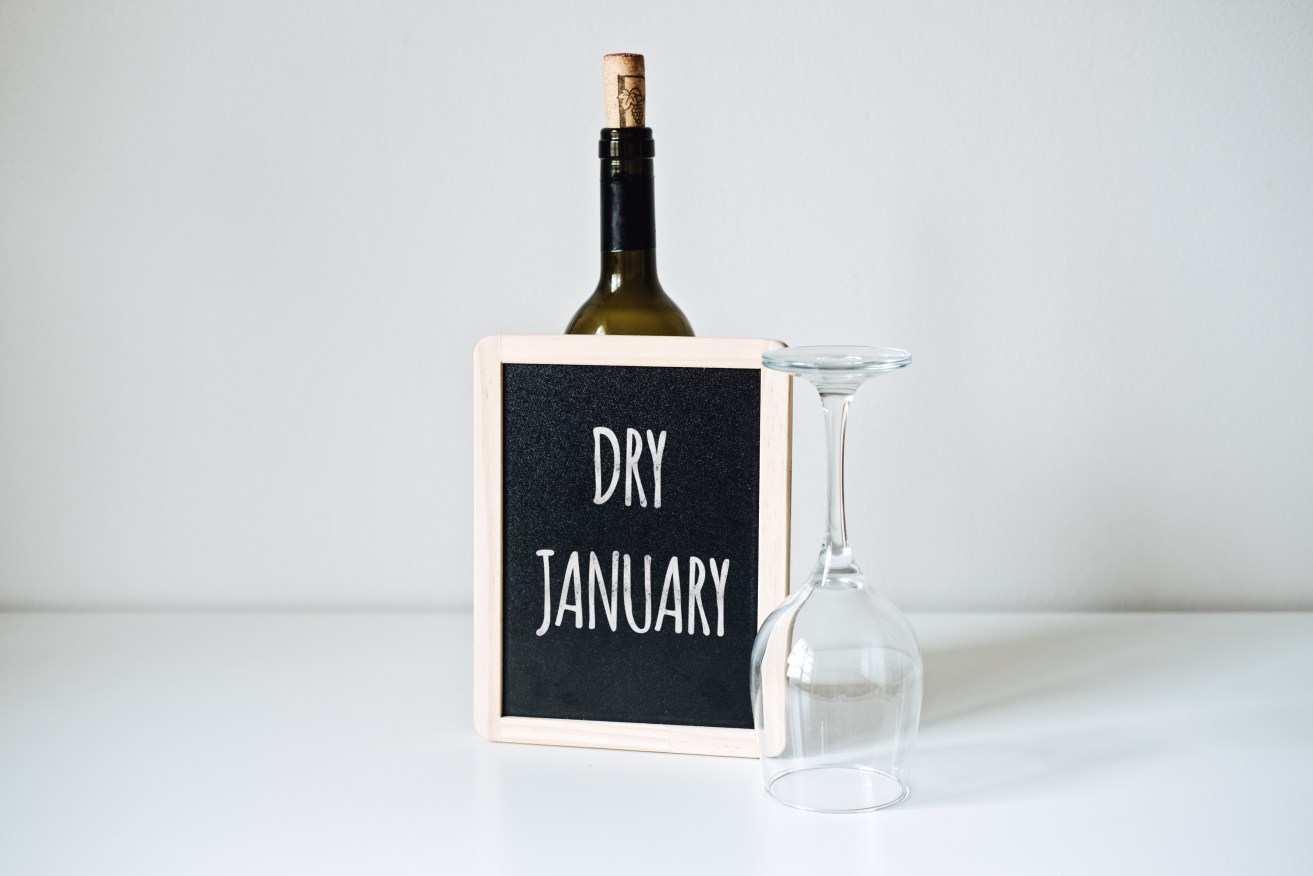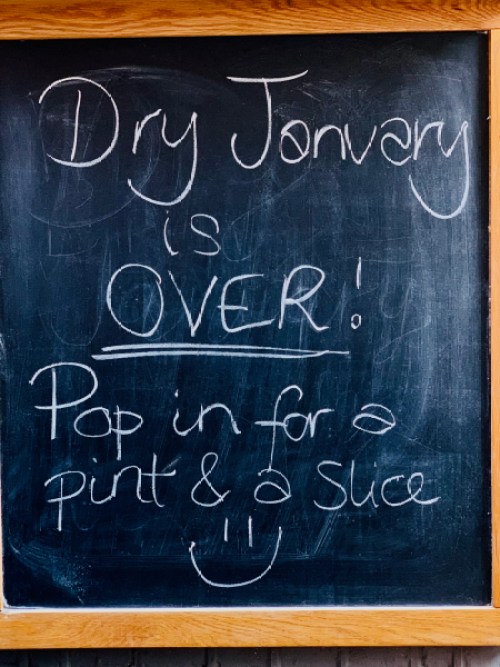January dry? Here’s why you should at least try


Dry January remains popular, despite criticisms that dominate the headlines. Photo: Getty
Ten years old, and beaten around the head by spoilsports and molly-coddlers. Happy birthday, Dry January!
This is the popular health initiative, begun in Britain in 2013, where people elect to give their livers a rest from alcohol.
For a whole month! While the holiday barbecues are still sizzling!
Increasingly, the campaign has inspired headlines such as:
Dry January ‘nags people with no drink problem into feeling guilty’. That was the London Times in January 2019.
Here’s why Dry January is terrible and you should stop doing it Business Insider, January 2017.
Dry January ‘could do more harm than good’ for alcohol problems. Sydney Morning Herald, January, 2013.
The British Medical Journal, in 2016, tried to set the record straight: Study shows that Dry January does more good than harm.
Indeed, people who stick at sobriety for just a few weeks tend to sleep better, give their immune systems a boost – and many of them reduce their intake in the longer term.
Perhaps even more important, Dry January asks a good personal question: if you struggle to go for a month without taking a drink, why is that?
So what’s with all the negativity?
Much of the negativity has been driven by Dr Ian Hamilton, a health sciences lecturer (and now associate professor) at York University. The 2013 SMH story was an early outing.
This was where the idea that Dry January “nags people into feeling guilty”.
Hamilton, in media reports and interviews, made the following claims:
- Just because Dry January is popular “does not mean it is effective”. Research shows this isn’t true.
- Because participants select themselves, it could attract the people at lowest risk from health problems related to alcohol. For such people “a month of abstinence relatively easy”. (Making the campaign meaningless.)
- People may view their 31 days of abstinence “as permission to return to hazardous levels of consumption until next New Year’s Day … ‘I’ve had a month off, so now I can drink as much as I did before’, ignoring the need for regular breaks from alcohol”.
Are these good reasons to throw out a campaign that at least gets people thinking about their alcohol consumption. Hamilton does make a reasonable point: And other people have made it.
A good point
In 2018, Dr Mark Wright, a consultant in liver medicine at University Hospital Southampton NHS Foundation, suggested that Dry January could provide the “perfect decoy” for problem drinkers.

If you can’t wait to get back to drinking, ask yourself why? Photo: Getty
“Giving up alcohol for a dry January as some sort of detox is like maxing out your credit cards all year and thinking you can solve your financial problems by living like a hermit for a month,” he said.
Plus, there’s that very human tendency to think that because we’ve been “good”, we can treat ourselves to more of the “bad”. That is, Dry January does no good at all if we have a sodden February.
However, Wright acknowledged that Dry January did at least get people thinking about their booze habits.
But has that message become a little lost when the negative headlines seem to be dominating the Dry January coverage.
A crusade
Year after year, Ian Hamilton has maintained his presence in the media, by refining his criticisms.
In a 2019 Conversation piece, he argued that campaigns like Dry January are a useful distraction for the alcohol industry because they focus on people who enjoy a regular tipples, and not the hard-core alcoholics who might fall down dead if they were to stop drinking all at once.
In 2021, he co-authored another Conversation piece about how to make Dry January a success!
The short version: It’s all about preparing for the hard slog of going without.
In the meantime, a new idea has emerged.
Is it too daunting, really?
On New Year’s Day, when the national hangover was in full hum, The SMH advised gently:
”Dry January too daunting? A ‘damp’ one is still worthwhile.”
Meaning: If you can’t get through all of January, or even a small stretch, without drinking having a glass of beer or wine or a honeypot’s worth of alcohol, don’t fret.
And don’t despond.
Do what you can.
And keep trying.
Having a well-intentioned go at abstaining from the booze, said the SMH, will still deliver some health benefits.
The SMH isn’t alone in taking this tack: The idea of a ‘damp January’ instead of a dry one, goes back to 2019, at the least.
How does it work?
Body and Soul, a wellness website, took the following cues from a British tabloid:
Instead of banishing booze for a whole month, try focusing on cutting back on how much you drink overall.
If you’re already regularly drinking more than the recommended amounts, set yourself the challenge of sticking to the limits every week.
Or if you’re someone that has a drink every day, try having one every second day.
Here are the benefits staying dry
Researchers from the University of Sussex found that people who took part in Dry January in 2018 reported higher energy levels and healthier body weight. They also felt less need to drink alcohol, even several months after participating in this initiative.
Specifically:
- 93 per cent of participants reported experiencing a sense of achievement at the end of the alcohol-free month;
- 88 per cent had saved the money that they would otherwise have spent on drinks;
- 82 per cent of participants reported an enhanced awareness of their relationship with alcohol;
- 80 per cent felt more in control of their drinking habits;
- 76 per cent understood when they felt more tempted to drink and why;
- 71 per cent of participants learned that they did not need alcohol to have fun;
- 71 per cent said that they enjoyed a better quality of sleep;
- 70 per cent reported better overall health;
- 67 per cent had higher energy levels;
- 58 per cent of participants lost weight;
- 57 per cent reported improved concentration;
- 54 percent said that they noticed better skin health.
Do make a note of these benefits. You’re not likely to see them in the headlines.








